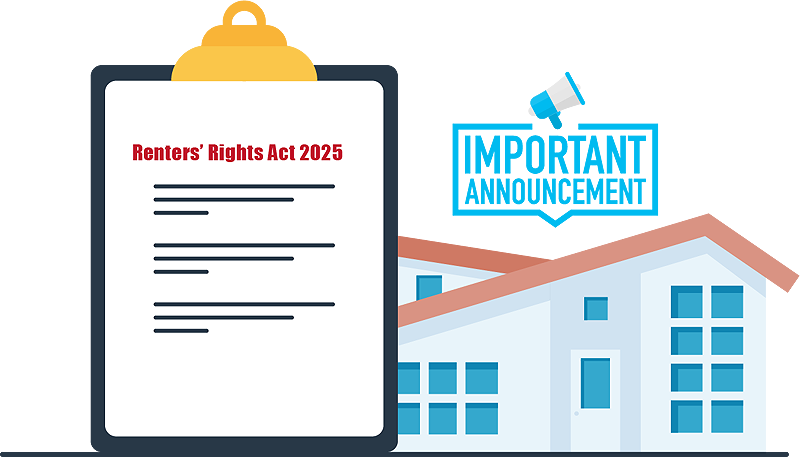As the new year begins, and the days gradually lengthen, we extend our heartfelt wishes for your well-being and prosperity throughout the year. At Kens Estate, we are committed to enhancing our services and approach the new year with renewed dedication. We appreciate your continued support.
In January, London experiences increased cold, with occasional snowfall and instances of road freezing. As temperatures drop below freezing, it is essential to be cautious about potential issues such as frozen radiators at home. While many households may have measures in place to cope with winter cold, do you know what to do in case of an emergency or a natural disaster? Anticipating significant emergencies worldwide is challenging, as they can occur unexpectedly. To handle sudden situations calmly, it is advisable to be prepared in advance.
Here, we introduce some straightforward advice for emergency situations from the Greater London Authority (link: https://www.london.gov.uk/programmes-strategies/fire-and-city-resilience/london-resilience-partnership/preparing-yourself-emergencies).
Emergency Preparedness - Eight Simple Pieces of Advice:
1. Investigate potential emergencies that may affect you - Check London's risk register.
(link: https://www.london.gov.uk/programmes-strategies/fire-and-city-resilience/london-resilience-partnership/preparing-yourself-emergencies)
2. Create a household plan, including emergency contacts, insurance details, and utility information for family members and cohabitants.
3. Learn the safe ways to shut off electricity, water, and gas.
4. Consider the well-being of pets. In case of evacuation, emergency shelters may only accept service animals.
5. Prepare an "emergency kit" with essential items for a short-term evacuation.
Example contents of an "emergency kit" (British Red Cross: https://www.redcross.org.uk/get-help/prepare-for-emergencies/prepare-an-emergency-kit)
・List of emergency contacts (in paper format for situations where mobile phones are unavailable)
・Battery-powered flashlight and spare batteries, or a wind-up flashlight
・Battery-powered radio, or a wind-up radio
・Necessary medications and a first aid kit
・Three days' worth of bottled drinking water and ready-to-eat emergency food
・Copies of essential documents such as insurance certificates and birth certificates in a waterproof bag
・Pencil, paper, penknife, whistle
・Spare keys for home and car
・Extra eyeglasses or contact lenses
・Baby and pet supplies
6. Strengthen connections with neighbors - Be aware of who in your community may need assistance during emergencies, such as the elderly, families with young children, or those with pets.
7. Research emergency measures at your workplace and your child's school.
8. Learn basic first aid - Acquire skills to save lives in emergency situations for family, friends, and others.
If you wish to delve deeper, check out "30 Ways to Boost Your Resilience" through the following link: https://www.london.gov.uk/programmes-strategies/fire-and-resilience/london-resilience-partnership-old/boost-your-resilience-30-ways
Emergency Response - "Go in, Stay in, Tune in"
Especially in the absence of evacuation orders, the best advice is usually as follows:
Go in: Find a safe place and close doors and windows. In some situations, the police or local authorities may open centers to provide safe locations.
Stay in: Remain indoors as long as it is safe. During this time, contact family and friends to ensure their safety and report any missing persons to the police.
Tune in: Use local radio stations, TV, and internet news sources to obtain information provided by emergency responders.
Note: In cases where "Go in" is not safe, such as during a building fire, follow the instructions of emergency services.
Recovery from Emergency Situations
During emergencies, a hotline called the Casualty Bureau is established to track missing relatives or friends. Ensure safety and avoid entering dangerous areas until emergency services declare them safe. If you cannot return home immediately, check if you can stay with friends or relatives. Local authorities may be responsible for providing temporary accommodations for those temporarily displaced, offering rest facilities or alternative housing.
Returning Home after an Emergency
Be cautious of new dangers that may have arisen from accidents:
・If there are glass shards or other hazards outside the building, check for cracks or unstable areas. Use protective gear and suitable shoes to prevent injuries.
・If you smell gas, open windows for ventilation, leave the building immediately, and contact the National Grid (0800 111 999) to confirm no gas leaks before resuming smoking or using flames.
・If electronic devices are wet, turn off the electricity at the fuse box, dry the devices, and consult a qualified professional before use.
・If water appears discolored or has an odor, it may be contaminated. Confirm its safety with the water company before using it for drinking, baby formula, tooth brushing, etc.
・Contact your insurance company, take photos of the damage, and keep records of repair and cleaning expenses. This documentation may assist with insurance claims.
・Take care of your health during recovery and reconstruction efforts. Stay hydrated, eat properly, and get enough rest. If you've been in contact with floodwater, wash your hands thoroughly with soap and water.
・Contact local authorities or emergency services if there are things affecting health and safety, such as damaged power lines, broken roads, gas leaks, dead animals, or the release of chemicals.
・At our company, we provide "Guidance on Occupancy" when you move in, including information on confirming your lifeline suppliers and contact details in case of issues. It might be a good time to review the property and area you currently reside in to be prepared for emergencies. Preparedness prevents mishaps.
2024 Calendar: At Kens Estate, due to popular demand, we have created an original desk calendar for this year. This year's theme is "Japan," featuring beautiful landscapes from various regions of Japan. The compact design includes Japanese and English holidays. If you are interested, please contact us at enquiries@kensestate.com with your name and delivery address, and we will deliver up to three copies for free.
Reference:
london.gov.uk "Preparing yourself for emergencies."
https://www.london.gov.uk/programmes-strategies/fire-and-city-resilience/london-resilience-partnership/preparing-yourself-emergencies (Accessed: 12/01/2024)





